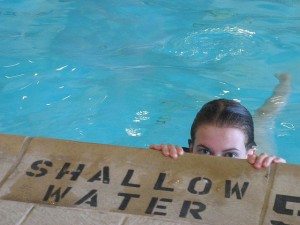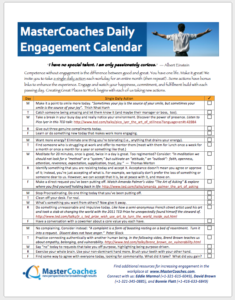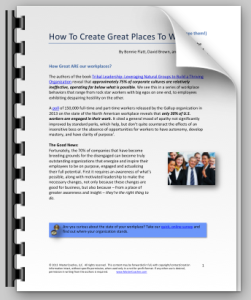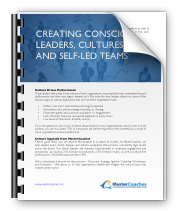I just read an article called the The Bright Side Of Wrong and it should not have surprised me that it was written by Kathryn Schultz, who I’m beginning to see has made the study of being wrong a focus of her work. This is the same Kathryn Schultz in one of our favorite TED videos On Being Wrong. What made this poignant for me today was also receiving an email from a client. I asked him to do a little exercise about learning how you are known. I have always found it to be revealing in many ways, usually unpredictably. I learned this exercise in the Tribal Leadership Intensives in which I am enrolled. It goes like this:
Interview with at least 2 individuals who you work with; or are in an organization with: to support you with determining how are you known.
Set Up: You are looking for feedback to better support your leadership growth and development
Ask these 4 questions:
- What can you count on me for?
- What can you not count on me for?
- What is the skill or talent that I’m crazy good at?
- If you could give me one piece of advice what would it be?
Your job is to listen and only speak to thank them or to clarify something.
At the end really thank them for what they contributed to you.
Here is what struck me about a response he shared. My client was described as “the most level person I have met. You show no peaks or valleys in your overall presentation to people. Kind of the Switzerland of human beings… You can be counted on as a friend that you know will always speak the truth. You can be counted on being there as a friend when needed to provide comfort and calm.”
But later there was this about what he couldn’t be counted on: “I would say that the one area that you stay away from is the depth in a relationship. Your not one that is going to give a controversial opinion or offer some tough advise. I would say that after knowing you my entire life that I wouldn’t know what type of friendship we have… Everything stays simple, which again is fine, but to need someone to count on in times of need, that’s not you.”
I had to wonder how much of that is related to a fear of being wrong, or creating conflict? While Kathryn talks extensively about the cost of our perceptions of being wrong in such areas as healthcare and aviation, what about these little more personal examples, the little tears in the fabric of our everyday lives? I think of the difficulty having serious conversations with my 21 year old son, who hates being wrong, and the limits that places on our relationship. I think of areas in my life where I might hold back and what might be the cost. I should add that in reflecting on this, it has opened up new possibilities for me in a project I am considering. Being wrong or making mistakes has lost its grip, and the learning and possibilities available far outshine the risks in this new light!
Where in YOUR life is your relationship with being wrong a limiting factor?
Are you willing to alter your relationship with being wrong so that you too can find it’s bright side, and open up new possibilities? Let us know how this unfolds in your life. Try the exercise I shared. You can’t go wrong!






Social Links